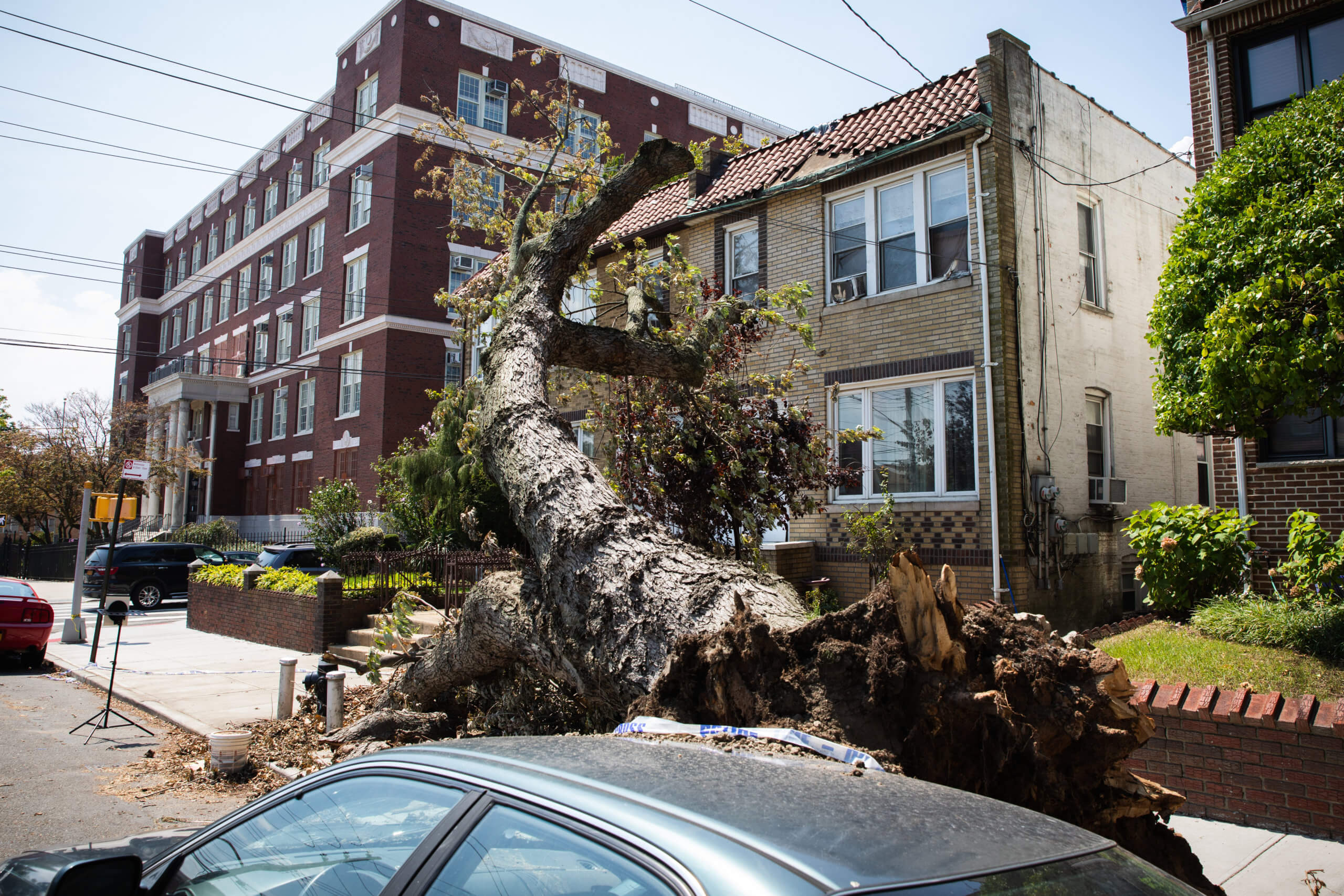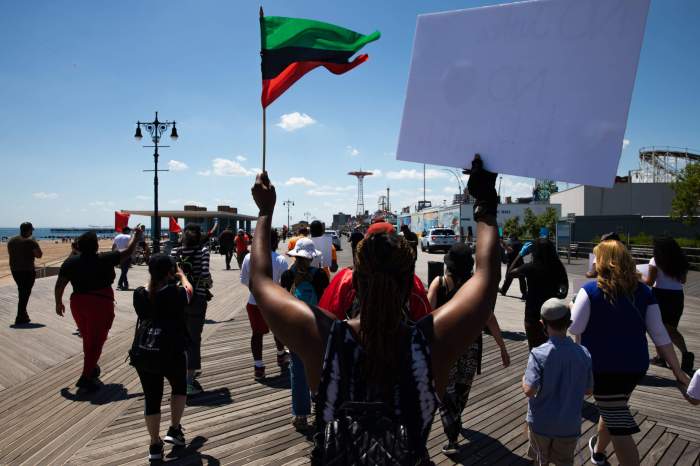All city beaches will be closed to swimming Sunday, Aug. 22, and Monday, Aug. 22, due to the dangerous conditions predicted as an effect of Tropical Storm Henri, NYC Parks announced Friday. Meanwhile, the Metropolitan Transportation Authority is taking precautionary measures, and urging New Yorkers to avoid public transit if they can.
The National Weather Service is predicting ocean swells along the Atlantic between 2 and 4 feet during the storm, with potential wind gusts of up to 60 mph.
Red flags and closure notices will be posted along all beaches, and Parks staff will be surveying beaches across the five boroughs to keep rule-breakers out of the water. Surfing will be allowed in designated areas only.
“We are serious about protecting all parkgoers. Out of caution for the dangerous conditions that are predicted, we have decided to close all City beaches to swimming,” NYC Parks Acting Commissioner Margaret Nelson said in a statement. “While surfing will still be allowed, lifeguards will not be on duty, and we strongly urge all New Yorkers not to risk their lives by ignoring this directive.”
The city agency is also advising New Yorkers to be careful in their local green spaces, as the expected high winds can impact street and park trees.

on Aug. 4 balances between a parked car and a residential building on 12th Avenue by 80th Street in Dyker Heights.Photo by Paul Frangipane
As the steward of the city’s trees, Parks is also urging New Yorkers to report fallen trees to the appropriate channels (911 if there is a life-threatening emergency, or 311 if it is not).
As for the city’s transit honchos, the MTA on Friday issued a slate of precautions they’re planning to take ahead of Tropical Storm Henri, which is expected to become Hurricane Henri early Sunday morning.
As of early Friday morning, Henri sat off the South Carolina coast with maximum sustained winds of 65 mph. Forecast tracks have the storm strengthening into a Category 1 hurricane (minimum winds 74 mph) as it moves northward before eventually colliding with the northeast coastline — either in New England or eastern Long Island — sometime on the afternoon of Aug. 22.
The most recent forecast models have the center of Henri tracking more westward than before, which prompted the National Hurricane Center to put Suffolk County under a hurricane watch Friday. Nassau County was put under a tropical storm watch, and that advisory was extended along the Rockaway Peninsula in Queens down to Sandy Hook, New Jersey.
“We can’t control Mother Nature but we can and have been proactively tackling those things that significant weather events typically affect such as overgrown trees, utility poles, drainage and switches to mitigate impacts and provide safe travel,” said LIRR President Phil Eng. “When storms such as Tropical Storm Henri hit, we strongly advise to avoid unnecessary travel if possible but rest assured, the LIRR workforce will be out in full force to protect service and keep you safe. If you have to travel, real-time information is available through our TrainTime app, which is the best place to look for the latest travel data before, during, and after any storm.”
Henri’s projected path shows the most significant potential impacts to Metro-North’s New Haven Line, said Metro-North President Catherine Rinaldi.
“We will inspect culverts and poor drainage areas and preposition equipment and personnel as necessary so we can respond quickly to any impacts of the storm to our system,” she said, adding, “Metro-North territory is particularly vulnerable to high winds due to trees and overhead power wires, and customers should plan for the possibility of delays and disruptions when the storm hits and check mta.info for the most up to date service information.”
This week marks the fourth time in just two years that New York City has been on watch due to a tropical storm. As the planet warms, it is expected that tropical strength storms will become stronger and more frequent in the region.
This story first ran in our sister publication amNewYork Metro.























